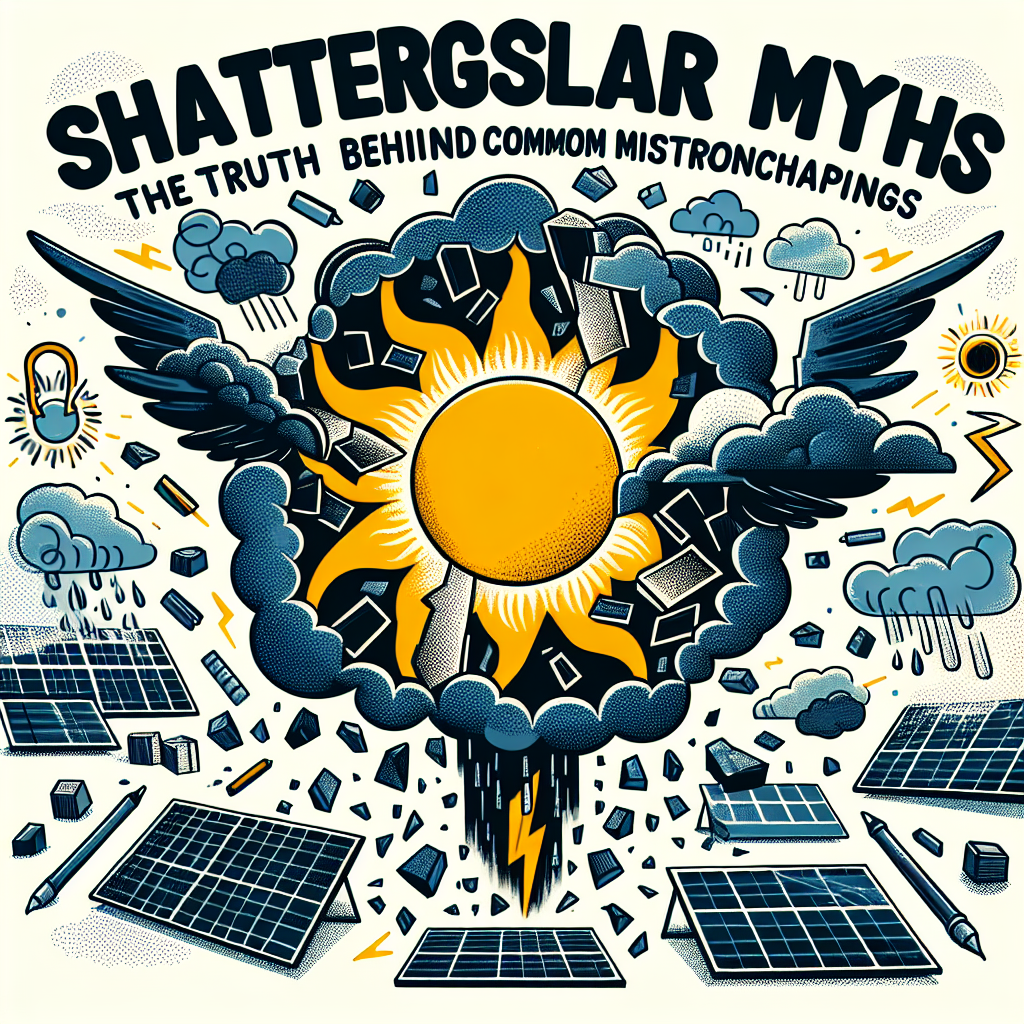Solar energy has gained significant traction in recent years. As more homeowners and businesses look to renewable sources of energy, the myths surrounding solar power have also proliferated. This article aims to debunk some common misconceptions and illuminate the path to understanding the true potential of solar energy.
Myth 1: Solar Panels Are Only Effective in Sunny Climates
One of the most prevalent myths is that solar panels only work efficiently in sunny locations. While it’s true that solar panels perform best in direct sunlight, they can still generate electricity on cloudy or overcast days.
The Science Behind Solar Energy
Solar panels convert sunlight into electricity, and even indirect sunlight can produce energy. In fact, many regions with less sunlight—think of places like Germany—have successfully implemented solar energy systems. The technology has advanced significantly, allowing solar panels to capture various wavelengths of light, not just the bright rays of the sun.
Myth 2: Solar Power Is Too Expensive
Many people believe that the upfront costs of solar panel installation are prohibitive. However, the reality is quite different. The solar industry has seen a drastic reduction in prices over the last decade, making solar power more accessible than ever.
The Financial Benefits of Going Solar
In addition to falling installation costs, numerous financial incentives exist, including tax credits, rebates, and net metering programs. These incentives can offset the initial investment significantly. Additionally, solar panels can increase property value and lead to long-term savings on electricity bills, making solar power a financially savvy choice.
Myth 3: Solar Energy Is Not Reliable
Concerns about the reliability of solar energy often stem from misconceptions about energy output. Some believe that solar power can’t provide a consistent energy source, particularly during the night or during bad weather.
The Reality of Solar Storage Solutions
With advancements in technology, solar energy systems can incorporate battery storage solutions that store energy for use during non-sunny periods. Homeowners can enjoy the benefits of solar energy around the clock, ensuring a reliable power supply regardless of weather conditions or time of day.
Myth 4: Solar Panels Require Vast Amounts of Space
Another common belief is that you need a large area—like a sprawling rooftop or a dedicated field—to install solar panels. While it’s true that large installations can generate more energy, many homeowners find that a modest setup is sufficient for their needs.
Making It Work for Smaller Spaces
Today’s solar technology is more efficient than ever. Resilient solar panels can fit into compact spaces, including smaller roofs or even balconies. Whether you live in a traditional home or a tiny apartment, there are solutions specifically designed to harness solar energy effectively.
Myth 5: Solar Panels Are Not Environmentally Friendly
Some skeptics argue that the production and disposal of solar panels have negative environmental impacts, suggesting that solar energy is not as green as it seems. But the truth is, the overall lifecycle of solar panels presents a significantly lower carbon footprint compared to fossil fuels.
A Greener Future
While there are environmental considerations regarding the manufacturing process, innovations are continually emerging to address these issues. Many solar manufacturers are adopting sustainable practices, and the end-of-life recycling of solar panels is progressing, aiming to minimize waste and enhance sustainability.
Myth 6: Solar Maintenance Is Complicated
Another myth that stops people from switching to solar power is the assumption that solar panels require constant maintenance. Many potential solar owners worry about upkeep costs and complications.
Low Maintenance Reality
In reality, solar panels are designed to be durable and low-maintenance. Regular cleaning and occasional inspections are generally sufficient to keep your system working efficiently. Most solar panel warranties last 25 years or more, giving homeowners peace of mind regarding longevity and reliability.
Conclusion: Embrace the Solar Revolution
By shedding light on these misconceptions, we hope to inspire more individuals and businesses to explore the benefits of solar energy. The transition to solar power is not just a necessary step for environmental stewardship; it’s also a savvy financial investment.
Breaking free from these myths empowers us to embrace a cleaner, sustainable future. As we continue to educate ourselves and others about the truth behind solar energy, we can collectively work towards a greener planet—one solar panel at a time.
Whether you’re a homeowner looking to cut costs or a business aiming to become more sustainable, understanding the facts about solar energy will help you make informed decisions about your energy future.
Let’s join together in this solar revolution and help turn myths into facts!


